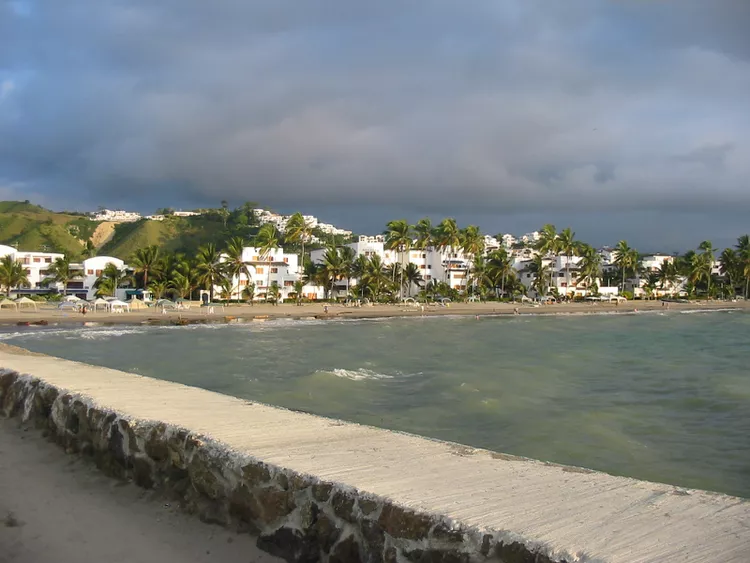Summary
Explore Esmeraldas, Ecuador: A Coastal Gem
Introduction
Esmeraldas, located in northwestern Ecuador, is known for its beautiful coastal cities and rich cultural heritage. While some sources warn potential visitors about dirty beaches and safety concerns, others highlight the vibrant local culture and the stunning natural scenery.
The province is characterized by its lush rainforests, tropical vegetation, and a network of rivers. The local culture is a fascinating blend of indigenous traditions and African influences due to the history of escaped slaves who made this region their home.
While there is no definitive “perfect time” to visit coastal Ecuador, the climate can guide your plans. From December to June, it is typically hot and rainy, while the period from June to September tends to be overcast and humid, and October to December sees slightly drier and cooler weather. Early August is an excellent time for a visit, as you can experience the city’s independence celebrations featuring marimba bands playing traditional African rhythms.
Getting There
Traveling to Esmeraldas can be convenient, whether by air or sea. Most travelers will arrive at Coronel Carlos Concha Torres International Airport or via cruise ships that dock at the port. Some cruise lines provide shore excursions to worthwhile destinations, but many passengers prefer to explore the local area.
For air travel, TAME offers daily flights to and from Quito. For those preferring land travel, bus services connect Esmeraldas with various coastal and inland cities. Taxis are a fast and economical option for trips to Quito. The port city also welcomes several cruise ships and offers small boat ferries connecting various coastal communities.
Beaches and Resort Towns
One of the main draws of Esmeraldas is its picturesque beaches and inviting resorts. The warm waters and refreshing sea breezes can attract crowds, particularly during hot, humid weather. Here are some of the most popular beach destinations:
- Atacames: Known for its lively beach bars, discos, waterfront hotels, and restaurants.
- Sua: A charming fishing village with beautiful beaches and a tranquil atmosphere.
- Same: An upscale resort town with pristine beaches and attractions like the Casa Blanca beach resort offering a golf course and marina.
- Muisne: An island destination with secluded beaches and a laid-back vibe.
- San Lorenzo: The largest town north of Esmeraldas, famous for its bay and nautical activities.
- San Vicente: A resort village with delightful beaches.
However, visitors should exercise caution in certain less-populated areas due to safety concerns, particularly in the small villages of Borbón and Limones due to crime and the risk of malaria from mosquitoes during the wet season.
What to Do
Esmeraldas offers a plethora of outdoor activities, making it an attractive destination for nature lovers and beachgoers alike. Popular pursuits include:
- Hiking
- Ocean kayaking
- Bird watching
Manglares Mataje and Cayapas Ecological Reserve are must-visit sites, featuring 55,000 hectares of untouched mangrove forests, pristine beaches, and thriving wildlife. The Cotacachi-Cayapas Ecological Reserve also presents excellent bird watching opportunities.
In addition, cultural events like the annual May Marimba Festival in San Lorenzo feature performances by local musicians, while the Fiesta de San Lorenzo in August celebrates salsa music with lively performances that continue late into the night.
Food, Drink, and Shopping Tips
When visiting Esmeraldas, take the chance to purchase traditional Panama hats in the local markets, even though the raw material for these hats originates from nearby Manabí. They provide a stylish way to shield your eyes from the sun.
In terms of local beverages, savor the flavors of aguardiente de caña (sugar cane liquor) and coco con aguardiente (coconut juice with liquor). Seafood and tropical fruits are staples at coastal restaurants, and you may want to try some regional dishes, including:
- Enceocado de pescado: Fish prepared with coconut juice.
- Tapao: A dish featuring wheat with fish and banana.
- Arroz con menestra, camarón, y patacones: A flavorful combination of rice, lentils, shrimp, and pressed green fried banana.
- Empanadas and bolones de verde: Delicious balls made of green banana, often stuffed.
- Cocada: A delightful dessert made from coconut, peanut, and brown sugar.
A Brief History
The history of Esmeraldas is rich and complex. For centuries, its remote location meant it was accessible only by sea, inhabited primarily by the native Tumaco and La Tolita cultures. The name “Esmeraldas” comes from Spanish explorers observing the local tribes adorned with emeralds.
During the era of slavery, some individuals escaped and found refuge along the Esmeraldas coast, creating a unique cultural enclave known as the “Republic of Blacks.” This region became a sanctuary for slaves escaping from various parts of Ecuador and neighboring South American territories.
The isolation fostered a vibrant culture that remains strong today, merging African and indigenous influences. With modern developments, including transportation and the establishment of Ecuador’s largest oil refinery in Esmeraldas, the city continues to grow as a center for commerce and tourism while nurturing ecological and wildlife conservation efforts.




